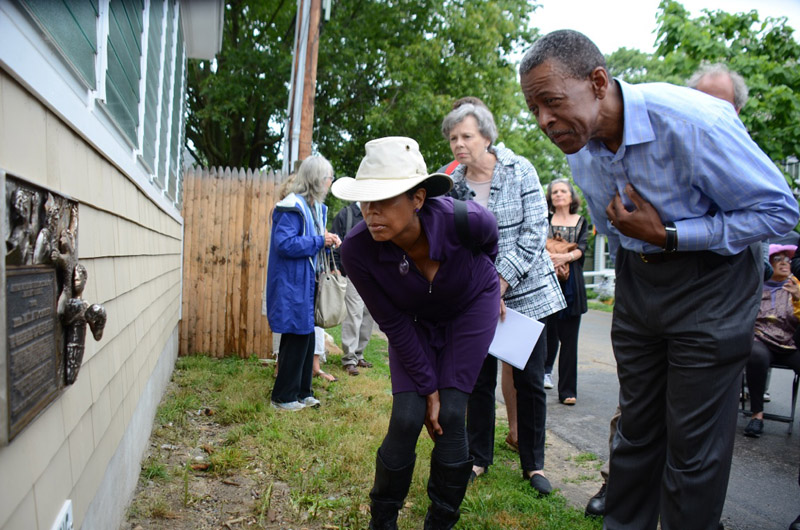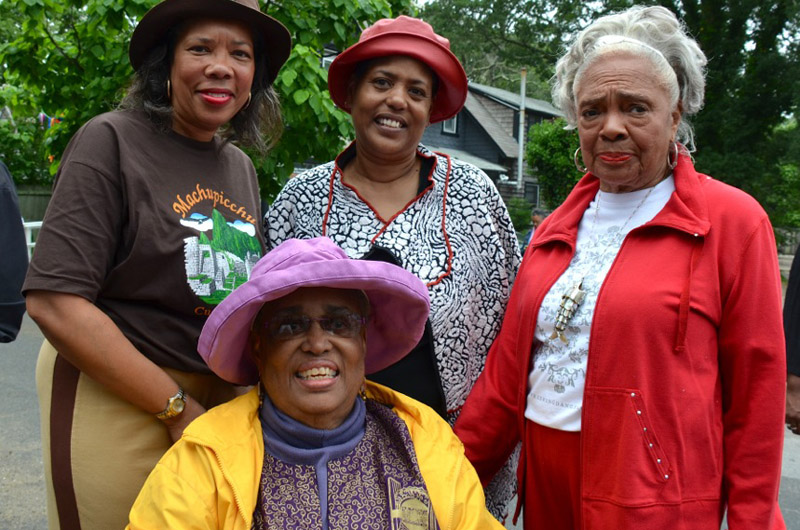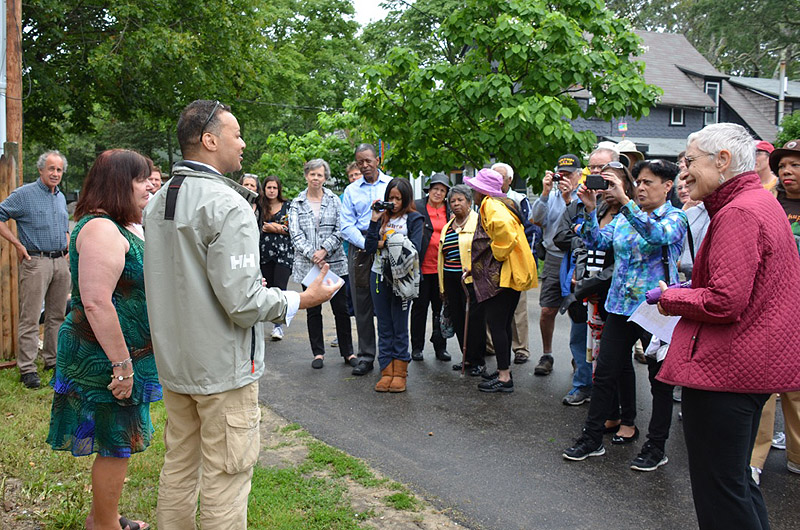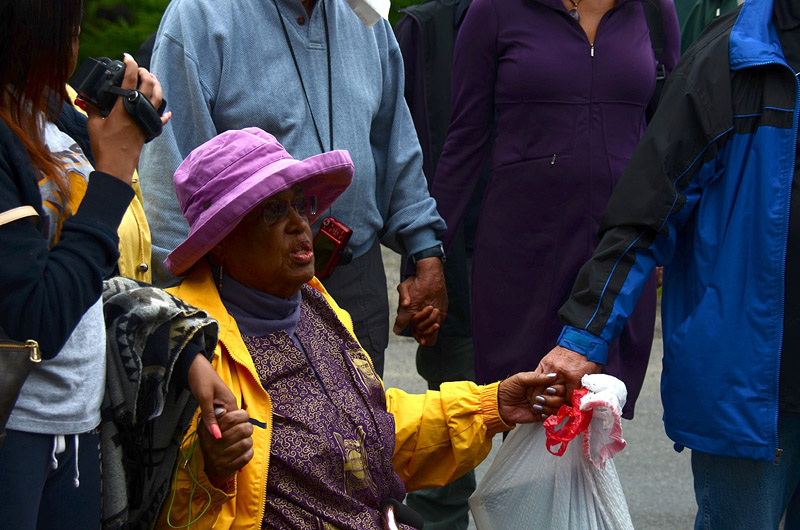A group of residents and visitors gathered on Dukes County Avenue under a gray and cloud-filled sky Sunday to commemorate the life and legacy of Emma Chambers Maitland, a woman of many talents during a time when her own opportunities were limited, by marking her home as the 26th site on the African American Heritage Trail.
“I know my Aunt Maitland is smiling down today,” her nephew Frank Chambers said to those present. “Saying, ‘Thank you, thank you, thank you!’”
Born Jane Chambers in 1893 in Virginia as the daughter of sharecroppers, Ms. Maitland was raised in poverty without the prospect of many opportunities to advance. She owned one pair of shoes for church, and another that she wore day in and day out as she worked the tobacco field with her family.
As she grew up, she discovered a love for teaching, and received help from a local convent to prepare for the state test to allow her to become a teacher, despite having little formal schooling or any connection to Catholicism beyond knowing the nuns who assisted her. Her father disapproved, viewing it as a sign of her drifting away from her family and her heritage, but this did not seem to deter Ms. Maitland. “From now on, I am to be what I am to be,” she wrote in a diary entry around that time.
Ms. Maitland ultimately passed the test, but after several years of teaching, she moved to Washington D.C., where within one year she became first a wife, then a mother, and finally a widow. She was left in the city with a new last name and a young child. With few prospects and faced with increasing discrimination in the United States, Ms. Maitland changed her name to Emma and made a decision, like other ambitious young African Americans of her generation, to move to Paris.
She first began working in France as a cabaret dancer at various clubs in the city, before performing a short skit on a whim in which she “boxed” with a female companion. But the performance was a hit, and Ms. Maitland began to consider real boxing as a possible career for herself. She soon applied for a boxing license, and began to make a small living charging $500 a fight.

“She became the world lightweight female champion,” said Elaine Cawley Weintraub, one of the founders of the Heritage Trail. “I don’t know how many women boxers were around at the time, but she was still the champion.”
Once Ms. Maitland returned to the States, she went back to performing, getting involved with the Harlem Renaissance and appearing in Shuffle Along, a popular African American musical of the era. Like other artists who had traveled to Paris, she used the freedom and opportunity she had experienced as an expatriate to help support and mentor others around her who were struggling in the United States.
Ms. Maitland also continued her involvement in physical sports, doing occasional wrestling matches in New York and even opening up a gym. Physicality, a part of the clean living doctrine to which she subscribed, would continue to stay with her long after her boxing career had ended.
Her main residence in Harlem was often a visitation stop for family, who remember her for her flamboyant style at Christmas dinners and family gatherings.

“She would just come in wearing these bright clothes everywhere,” said Mr. Chambers. “It was like, ‘Wow!’ And for a woman her age too.”
Ms. Maitland also maintained a small home on the Vineyard, where she would continue to entertain family and friends, some of whom evoked fond memories Sunday of summers visiting Ms. Maitland on the Island.
“If it was raining and I would say, ‘Are we going swimming?’ she would just say, ‘You’re going to get wet anyways baby,’” Jacqueline Hunt, a longtime friend of Ms. Maitland, said at the dedication ceremony,
Her joint Harlem and Martha’s Vineyard connections allowed her to rub elbows with a variety of notable African American figures, including Adam Clayton Powell and Josephine Baker, and put her at close proximity to many celebrities passing through the Island in the summer.
The swansong of Ms. Maitland’s long and varied career came when she served as a nurse for several years before retiring to live on the Vineyard year-round until her death in 1975. The plaque created by Barney Zeitz that commemorates her life at her former home at 113 Dukes County avenue lists her professions as a singer, dancer, boxer, wrestler, and nurse, giving a sense of just how wideranging her experience was. But part of the reason for including her on the Heritage Trail comes from the universality of her journey as one who came from nothing with many disadvantages to make herself into something greater.
“The trail doesn’t mean you put a plaque on the home of every African American,” explained Ms. Weintraub. “This honor comes to someone who embodies the African American experience. [Ms. Maitland] epitomizes the values and aspirations of a whole community of African Americans who came here and had a life here at a time when African American mobility was very limited.”
The crowd at the site’s dedication on Sunday seemed to agree. After a short moment of silence for the victims of the Charleston shooting, Mr. Chambers unveiled the plaque with a hearty smile to applause from all those present.
“Her song was My Way,” said Mr. Chambers after the ceremony. “And when I heard that last week at a restaurant, I just teared up. That’s just how she did it. Her way, you know?”








Comments
Comment policy »